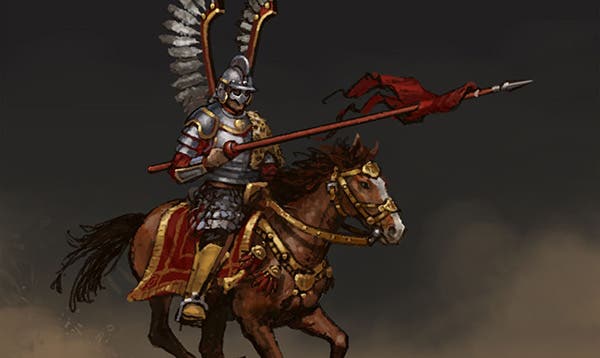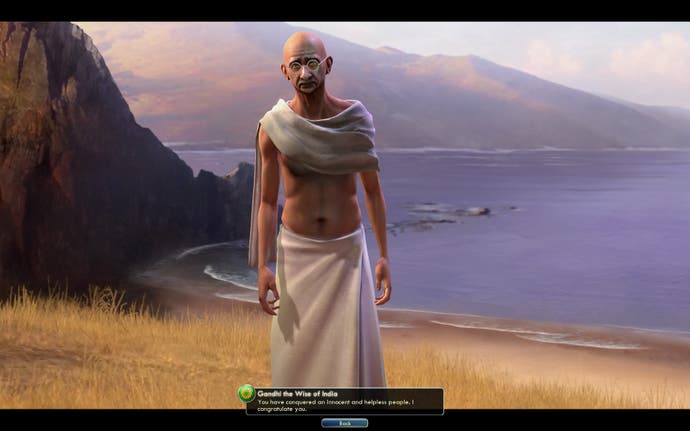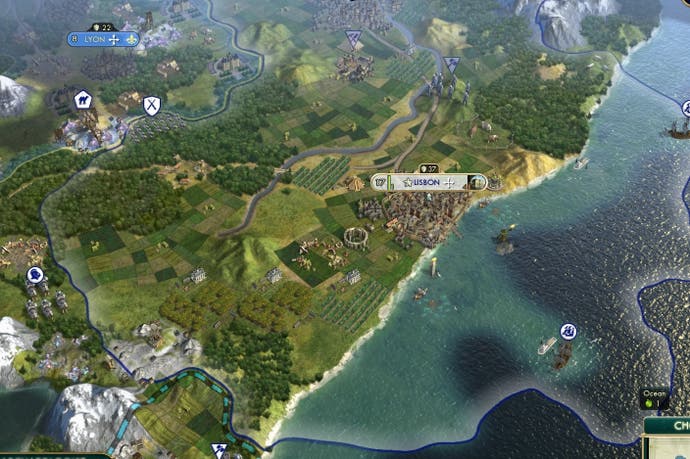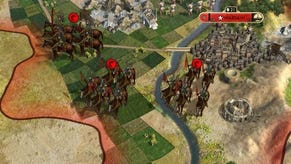Civilization 5 - Brave New World: Are culture players finally getting the endgame they deserve?
Art attack.
Cultural victories are the ones that tend to stick. You can bomb people into oblivion, but they often just come back from oblivion fuming about it. Hit them with Shakespeare, though - or with Starbucks - and you've dealt your enemy a blow that's much harder to shake off. If all-out warfare's like going to your neighbour's house, ringing the doorbell and then smacking them about the face with a snow shovel, cultural imperialism is a little sneakier - it's more akin to dropping a load of termites over the back fence under the cover of night. Termites that write the popular hits and star in the popular films as they munch through your rival's territory. Termites that come bearing flat whites and frappucinos.
Okay, that analogy has fallen apart somewhat - but so, you could argue, has the Civilization series' previous attempts at designing meaningful and truly satisfying cultural victories. Ed Beach, formerly of NASA and a man who's created the absolute best strategy card game about the Reformation, doesn't necessarily disagree with that - and a large part of the focus of his team's latest project, the Civ 5 expansion Brave New World, lies with sorting it out.
"The way the culture victory used to work is that there have always been social policies - 10 different trees - and the goal was to complete five social policy trees and spend a few turns building the Utopia Project to win a victory," Beach explains. "What we found is that there were incentives in this old cultural victory system to keep your civilisation small. You never wanted to have more than three or four cities because the cost of new policies would go up too much. It was the perfect strategy for isolationists.
"We felt that not only was that not reflective of the civilisation that is actually culturally the greatest, but it isn't a very interesting play style." Beach laughs. "What we want for each victory is different things you build up and different things you excel at during the game, but what we also want is for each four forms of victory to encourage you to interact with the other powers. We want to move culture away from filling in trees towards creating signature elements that make your culture unique from anyone else's. We wanted the culture victory to be a lot more like Rome. The more you're building your great works, the more people respect you and are in awe of you. You overwhelm them with your culture."
At the simplest level, the solution Beach and his team has hit on encourages you to turn the great art of human history into what amounts to a series of poker hands."We've always had great artists in the game," Beach explains, "but now we're breaking that down. We have great artists, writers, and musicians in the game now. And now if you have a great artist they can still start a golden age, but they also have this new ability to create a great work."

Breugel's Babel, Fitzgerald's Gatsby, anything by early period Santana - each great work you come by boosts both your culture meter, which is a defensive power that measures your civilisation's ability to resist other civilisations' culture, and your tourism meter, which is your own culture weaponised. The ultimate aim is to spread across the world like an arty oil slick and become culturally influential with every other nation on the board. Do that before anyone else and you've got the cultural victory. "Pearl Harbor didn't work out so we got you with tape decks." A wise man once said that. Rest in peace.
The way the new culture victory's implemented may truly make it sing. Great works are stored in your cities in specific buildings - places like museums and amphitheatres - and many of these structures come with more than one slot. This leads to a compulsive little mini-game - the poker bit - where you get an additional boost to both culture and tourism when matching works that go together thematically.
Score two pieces of sweet Polish renaissance sculpture and stick them side by side? Art combo! It's potentially game-derailing stuff as you neglect your military industrial complex to go antiquing around the Medieval landscape, and it should also truly capture the leap-frogging one-upmanship of real human culture. Civ's original culture strategy always slowed down in the second half of the game, but this approach builds organically in momentum as one power really starts to get its act together. It's one of those great Civ moments where the metaphors of game design come together to offer a sly commentary on the way the world really works, where a mechanic reminds you of something and you realise, oh yeah, this is us.
The race to nail down the most great works will also encourage players to interact with other civilisations, as you're going to need to barter or pillage your way to that complete set of 19th century watercolours you want so badly. Meanwhile, the whole thing comes to a head with the Louvre, the only building in the game with four culture slots and a truly dazzling theming bonus if you can match the specific criteria. Offering massive boosts to your stats, the Louvre is essentially the headshot of the cultural world.

To rule the Louvre, you're not just going to need great art - you're going to need great relics, too, and this ties into another of Brave New World's major overhauls: archaeology. "Up until now, that was the one tech in the tech tree that could put you to sleep," laughs Beach. "It didn't really do much for you. It unlocked two wonders and that was pretty much it. Now it's the tech to bee-line for if you're a culture player. Not only do the great people generate great works but there are great works out there on the map to be found."
Archaeology is truly ingenious. "What happens is that as the game starts up and you have initial battles with the barbarians in the early and classical era, we keep track of that, and it effectively gets written onto the map," says Beach. "Then, when the first civilisation unlocks archaeology, we generate a new resource on the map - just like iron or uranium. But this new resource is antiquity sites, and it's generated from the location data that's been built up during the course of the game so far."
This is seriously elegant stuff. It means that a game that's always been concerned with the passage of time is really learning to tap into its own history, and it should help to tackle the great endgame problem of Civ, too - the fact that once the map's filled out and the exploration phase is over, the whole thing loses a lot of its dynamism.
Suddenly, just as the final fog of war is lifting, the map is seeded with new things to uncover - and new things to fight over. "It's not as full an exploration game as you get at the beginning," admits Beach, "but it is definitely another layer of exploration that happens from the late 1600s onwards. Out of your universities come archaeologists - a new unit type - that can go to antiquities sites and construct archaeological digs. What's going to happen out of that is that it'll tell us what occurred there and give us artefacts for our museum. You can also decide not to mine battlefields by archaeology, but to preserve them for tourism instead. The older it is, the more tourism and the more culture is generated."
There's more to Brave New World than this clever expansion of culture, of course. Firaxis is adding nine new civilisations including Poland, Brazil and the Zulu, and there's a new trade setup that does away with the abstract system of regular gold bonuses in favour of genuine merchant routes that you can lay across land or briny sea. These work by looking at the resources at each end of the route and then calculating the value of traded goods based on their relative scarcities. The civilisation that initiates the route gets the biggest bonus from it, but science and religious pressure will also travel alongside your apples and oranges, meaning that if you're not careful you're going to see some of your non-monetary advantages trickling away over time. (Trade routes can also be run internally, incidentally - meaning that you can get your whole civilisation mucking in when you want to build the pyramids - "just like the Egyptians did!" notes Beach triumphantly.)

Finally, diplomacy benefits from the addition of the World Congress, another move designed to bring energy to the endgame. The Congress is initiated once one player has discovered all the other civilisations, and when it convenes every few rounds, it sees all the game's powers voting on a series of proposed resolutions.
These are essentially changes to the game rules that can really screw you over if you end up on the wrong side of a decision. Alongside joint works like a World's Fair that benefits everyone to a greater or lesser extent, there are army taxes, trade embargoes, and all manner of other tricks to halt the progress of a runaway civilisation. It should be fascinating to watch the resolutions evolve over time, while the formation of natural power blocks (strengthened by an ideology system that forces everyone to choose between what amounts to democracy, fascism and communism - and their attendant trees - once industrialisation has kicked off) may help to bring some shape to the series' notoriously fickle AI.
It's late in the day for these kind of sweeping changes, perhaps, but Brave New World promises to get to the heart of some of Civ's knottiest problems and really mix things up. Just as real civilisations tend to evolve by building on the past, Firaxis' series continues to grow by taking old ideas and rethinking them in interesting ways.
This article is based on a press trip to Firaxis' offices in Maryland, USA. 2K paid for travel and accommodation.









.png?width=291&height=164&fit=crop&quality=80&format=jpg&auto=webp)



